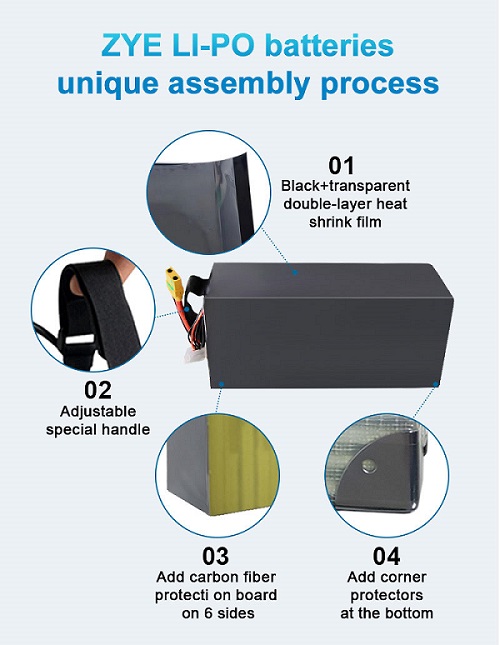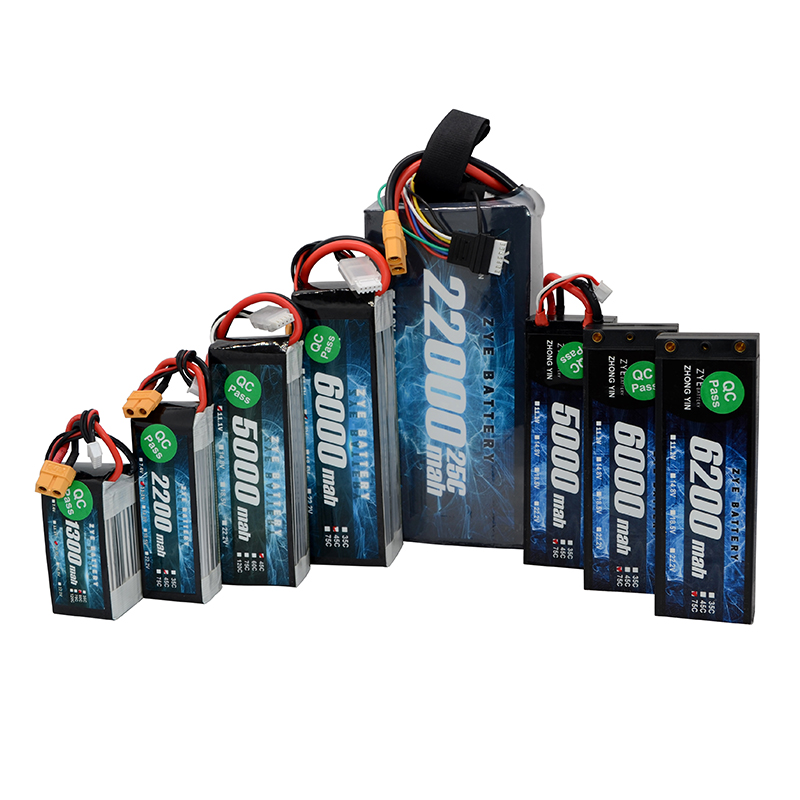Can you bring lipo batteries on a plane?
2025-03-05
Traveling with lithium polymer (LiPo) batteries can be a source of confusion and concern for many passengers. Whether you're a drone enthusiast, RC hobbyist, or simply carrying portable electronics, understanding the rules and regulations surrounding LiPo batteries on planes is crucial. In this comprehensive guide, we'll explore the ins and outs of flying with LiPo batteries, focusing on high-capacity options like the 6s 22000mah lipo, and provide you with essential information to ensure a smooth journey.
What You Need to Know About Flying with Lipo Batteries
LiPo batteries have become increasingly popular due to their high energy density and lightweight nature. However, their volatile chemistry also poses potential safety risks, especially in the pressurized environment of an aircraft. This has led aviation authorities and airlines to implement strict regulations regarding their transport.
Here are some key points to remember when flying with LiPo batteries:
Capacity Limits: Airlines typically allow LiPo batteries with a capacity of up to 100 watt-hours (Wh) in carry-on baggage without requiring approval. However, if the battery's capacity falls between 100Wh and 160Wh, you may need to obtain prior approval from the airline. Batteries above 160Wh are generally prohibited on passenger aircraft.
Quantity Restrictions: Many airlines have limits on how many spare batteries you can bring with you. There are often restrictions on the total number of batteries allowed in carry-on luggage, so it’s important to verify the exact regulations of your airline in advance.
Carry-On Only: LiPo batteries must always be carried in your carry-on baggage. Storing them in checked luggage is not permitted due to the potential risks of fire or damage that could occur in the cargo hold.
Protected Terminals: To avoid short circuits, ensure that the battery terminals are properly protected. This can be done by covering the terminals with tape or placing each battery in its own plastic bag or protective case.
State of Charge: For added safety during your flight, it’s recommended to partially discharge your LiPo batteries to about 30-50% of their capacity before traveling. This reduces the risk of thermal runaway and enhances the safety of your batteries during transport.
It's important to note that these regulations can vary slightly between airlines and countries. Always check with your airline and relevant aviation authorities before traveling.
6s 22000mah Lipo Batteries: Safety Tips for Air Travel
When it comes to high-capacity batteries like the 6s 22000mah lipo, extra precautions are necessary. These powerful batteries, often used in large drones or RC models, require special attention due to their increased energy content.
Here are some specific tips for traveling with 6s 22000mah lipo batteries:
1. Watt-Hour Calculation: A 6s 22000mah lipo battery typically exceeds the 100Wh limit for carry-on without approval. Calculate the watt-hours by multiplying voltage (22.2V for a 6s) by capacity in amp-hours (22Ah). This gives 488.4Wh, well above the standard limit.
2. Airline Approval: Due to its high capacity, you'll need to obtain explicit approval from your airline to carry a 6s 22000mah lipo battery. Contact them well in advance of your flight.
3. Professional Packaging: Consider using specialized LiPo-safe bags or containers designed for air travel. These can provide an extra layer of safety and may be required by some airlines.
4. Documentation: Carry manufacturer documentation showing the battery's specifications. This can help if questioned by security or airline staff.
5. Discharge for Safety: Consider discharging the battery to an even lower level, around 20-30%, for added safety during air travel.
Remember, safety is paramount when traveling with high-capacity LiPo batteries. If in doubt, it's always better to err on the side of caution and consider alternative arrangements for transporting your 6s 22000mah lipo battery.

Airline Regulations on Carrying Lipo Batteries in 2025
As we look ahead to 2025, it's important to note that regulations surrounding LiPo batteries on planes are subject to change. While we can't predict exact future policies, we can anticipate certain trends based on current developments:
1. Stricter Capacity Limits: There may be a trend towards lowering the maximum allowed capacity for batteries in carry-on luggage without special approval.
2. Enhanced Safety Measures: Airlines might require more robust safety measures, such as mandatory use of certified LiPo-safe containers.
3. Technology-Based Solutions: We may see the introduction of smart luggage or battery cases that can actively monitor and report battery status to airline systems.
4. Standardized Global Regulations: There could be a push towards more uniform global standards for transporting LiPo batteries on aircraft.
5. Increased Scrutiny: Expect more thorough checks and possibly the use of advanced scanning technology to detect and assess batteries in luggage.
For batteries like the 6s 22000mah lipo, which already exceed current standard limits, the regulations are likely to remain strict or potentially become more stringent. Hobbyists and professionals who rely on such high-capacity batteries may need to explore alternative shipping methods or rental options at their destination.
As we approach 2025, it's crucial to stay informed about the latest regulations. Always check with your airline and relevant aviation authorities before traveling, as policies can vary and change rapidly.
In conclusion, while it is possible to bring LiPo batteries on a plane, including high-capacity options like the 6s 22000mah lipo, it requires careful planning, adherence to regulations, and often prior approval from the airline. As we move towards 2025, we can expect safety to remain the top priority, with potentially more stringent and technologically advanced measures in place.
For the most up-to-date information on traveling with LiPo batteries, including our high-performance 6s 22000mah lipo options, don't hesitate to reach out to us. Our team at ZYE is committed to helping you navigate these regulations and ensure a safe and hassle-free travel experience with your LiPo batteries. Contact us at cathy@zyepower.com for personalized assistance and the latest updates on air travel regulations for LiPo batteries.
References
1. International Air Transport Association (IATA). "Dangerous Goods Regulations for Lithium Batteries." 2024 Edition.
2. Federal Aviation Administration (FAA). "Pack Safe - Batteries, Lithium." Updated Guidelines, 2024.
3. European Union Aviation Safety Agency (EASA). "Lithium Batteries: Recommendations for Passengers." 2024 Report.
4. Journal of Aviation Technology and Engineering. "Evolution of Lithium Battery Regulations in Commercial Aviation." Vol. 14, Issue 2, 2024.
5. International Civil Aviation Organization (ICAO). "Technical Instructions for the Safe Transport of Dangerous Goods by Air." 2024-2025 Edition.
























































